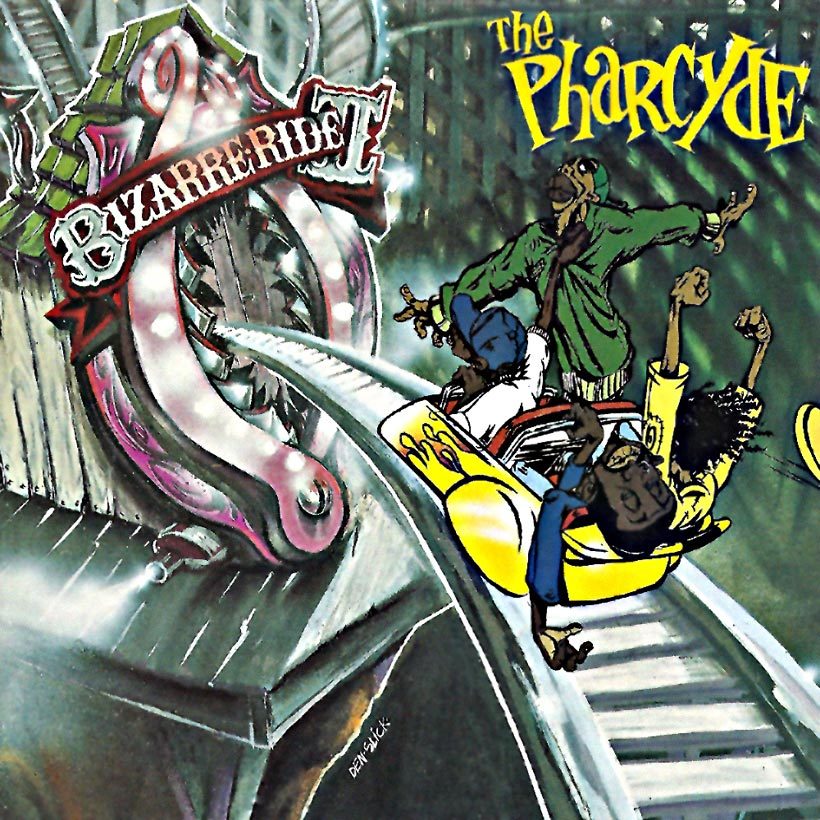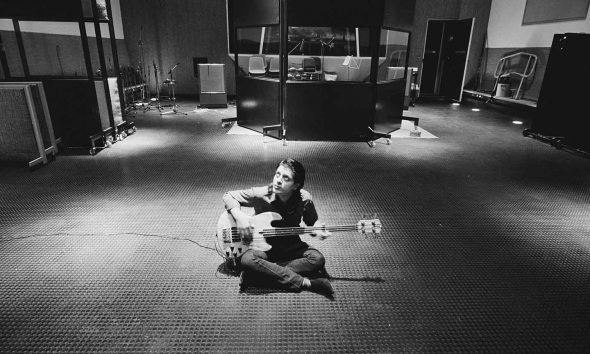‘Bizarre Ride II The Pharcyde’: A Sampledelic Trip Worth Taking
A bizarre ride through funk, rock and jazz history, The Pharcyde’s debut album remains unique in the history of hip-hop – a rare example of rap without ego.

Released on November 24, 1992, The Pharcyde’s debut album, Bizarre Ride II The Pharcyde, remains unique in the history of hip-hop: its quirky good humor, self-deprecation, and searingly honest tales of everyday life are a rare but joyous example of rap without ego. Plus, it has a boatload of samples that still keep crate-diggers busy…
Formed in an LA dominated by the bullishness and braggadocio of gangsta rap, The Pharcyde’s members – Imani, Slimkid3, Fatlip, and Bootie Brown – took on the role of the everyman, the stoner, the loser. Lyrically, it’s a work shot through with a lust for life’s misadventures, with subject matter split between getting high (“Pack The Pipe”), getting the brush-off (“Passin’ Me By’), or just trading hilarious insults (“Ya Mama’). Darker subject matter was covered too. “Officer,” for example, recounts the type of routine abuse that led to the LA riots (which erupted during the months that the album was being recorded).
Listen to Bizarre Ride II The Pharcyde on Apple Music and Spotify.
Just as important a contributing factor to the work’s legendary status was the remarkable contribution by J-Swift. The young jazz pianist and music producer christened Juan Manuel Martínez contributes a brilliantly orchestrated, kaleidoscopic tapestry of sounds, the brilliance of which went on to influence the careers of the likes of The Roots and Pete Rock.
A student at Locke High School, Swift was mentored by the school’s legendary music teacher Reggie Andrews, a man whose storied music career involved a stint arranging strings for Rick James, and writing and production credits on Dazz Band’s biggest hit, “Let It Whip.” He later went on to found SCU (South Central Unit), an after-school program for local musicians, whose students have included the likes of Patrice Rushen, Thundercat, Terrace Martin, and Kamasi Washington. An inveterate record collector, Andrews stored a huge cache of classic vinyl in a garage which he let Martinez visit for inspiration. It’s this remarkable tranche of classic soul, jazz, funk, and rock that forms the bedrock of Bizarre Ride II.
High-energy early track “Oh Shit’ rides a slowed-down sample from jazz trumpet master Donald Byrd’s hard bop workout “Beale Street.” “4 Better Or 4 Worse’ uses a snatch of looped guitar from Fred & The New JB’s’ “Rockin’ Funky Watergate’ together with a chopped and changed organ break from The Emotions’ “Blind Alley’ – though the song’s most beloved element was performed by J-Swift himself. His smooth and soulful Rhodes organ lines, which lend the song such a sense of warmth, inspired Pete Rock to do the same on his Rhodes-drenched track “One In A Million,” and was to have a profound effect on Ahmir “Questlove” Thompson, who, after hearing The Pharcyde’s track, decided to enlist a Rhodes player into The Roots’ nascent line-up.
“On The DL’ utilizes two separate tracks from pianist Stanley Cowell’s independent jazz album Musa: Ancestral Scream, with Equipoise’s pensive piano and Travellin’ Man’s delicate thumb piano given a shot of energy by a sped-up loop culled from The Meters’ “Hey! Last Minute.” Elsewhere, the errant maternal mud-slinging of “Ya Mama’ was powered by an organ loop from Mike Bloomfield, Al Cooper, and Stephen Stills’ inspired, groove-heavy cover of Donovan’s “Season Of The Witch.”
Arguably the album’s best-loved song, “Passing Me By’’s tales of unrequited love ride a remarkable confluence of sounds, with the low-slung organ of Quincy Jones’ “Summer In The City’ offset with drums from Skull Snaps’ “It’s A New Day’ and Jaco Pastorous’ bassline from Weather Report’s “125th Street Congress.”
“Pack The Pipe’’s freestyled tales are underscored by two prime slices of jazz, with a sluggish piano motif from John Coltrane and Johnny Hartman’s “Autumn Serenade’ given added spice with the addition of Herbie Mann’s perky flute work – culled from his Latin jazz workout, “Bijou.” Harnessing the jazz vibe yet further, “Otha Fish’ ends the album with another Herbie Mann sample, the looped flute bursts and trumpet blasts lending the song its irresistible groove.
It was a bizarre ride through funk, rock, and jazz history, but it was a trip well worth taking.












